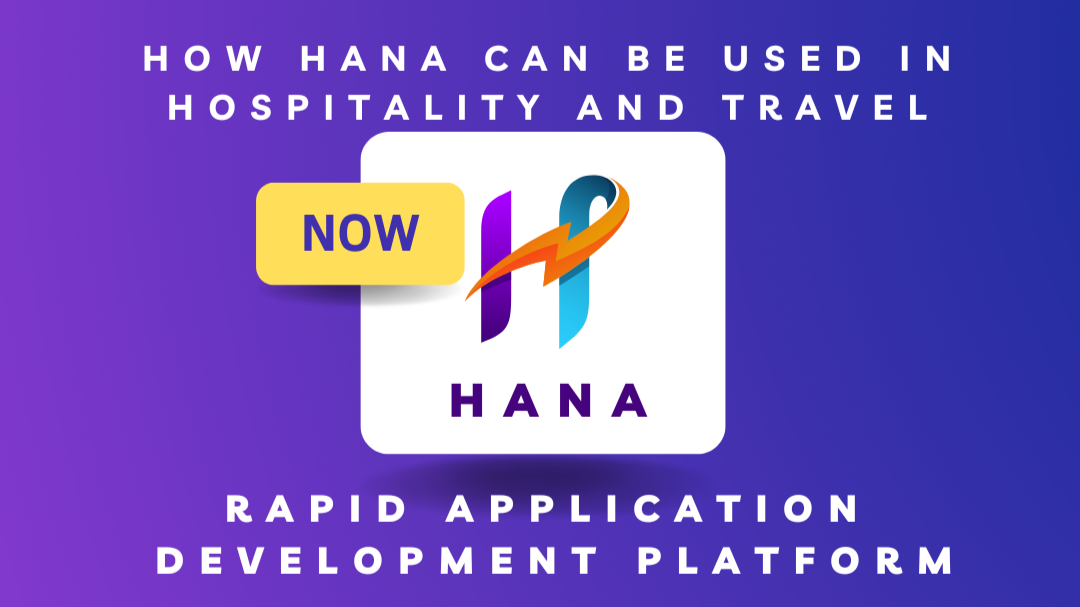- by admin
- April 22, 2025
How HANA Can Be Used in Hospitality and Travel

HANA (High-Performance Analytic Appliance) offers powerful capabilities that can transform the hospitality and travel industry. By enabling real-time data processing and analytics, HANA can help businesses enhance customer experiences, optimize operations, and improve decision-making. Here’s how HANA can be effectively utilized in this sector:
1. Personalized Guest Experiences
– Implementation: Use HANA to analyze customer data, including preferences, booking history, and feedback.
– Benefits: Tailor services and offers to individual guests, enhancing satisfaction and loyalty. For example, hotels can provide customized welcome amenities or personalized room settings.
2. Dynamic Pricing and Revenue Management
– Implementation: Leverage HANA to analyze market trends, competitor pricing, and demand patterns in real-time.
– Benefits: Optimize pricing strategies dynamically based on supply and demand, maximizing revenue and occupancy rates.
3. Operational Efficiency
– Implementation: Use HANA to streamline back-end operations, such as inventory management, staff scheduling, and maintenance tracking.
– Benefits: Reduce costs and improve service delivery by optimizing resource allocation and operational workflows.
4. Real-Time Booking Analytics
– Implementation: Analyze real-time booking data across different channels (e.g., website, mobile apps, travel agents) using HANA.
– Benefits: Identify trends and adjust marketing strategies or promotional offers to increase bookings and revenue.
5. Guest Feedback Analysis
– Implementation: Utilize HANA to process and analyze guest reviews and feedback from various platforms.
– Benefits: Quickly identify areas for improvement, address guest concerns, and enhance overall service quality.
6. Predictive Maintenance
– Implementation: Use HANA to monitor equipment and facility conditions in real-time.
– Benefits: Predict maintenance needs for appliances, HVAC systems, or other facilities, reducing downtime and improving guest comfort.
7. Marketing Campaign Optimization
– Implementation: Analyze customer segments and campaign performance in real-time with HANA.
– Benefits: Tailor marketing strategies to specific demographics, enhancing engagement and conversion rates for promotions and packages.
8. Travel Itinerary Management
– Implementation: Integrate HANA with travel booking systems to provide real-time updates on travel itineraries, changes, or disruptions.
– Benefits: Improve customer service by keeping travelers informed and enabling quick adjustments to travel plans.
9. Public Transportation Coordination
– Implementation: Use HANA to analyze data from public transportation systems and coordinate with travel services (e.g., airport shuttles).
– Benefits: Enhance guest convenience by providing real-time transportation options and recommendations based on arrival times.
10. Loyalty Program Management
– Implementation: Analyze customer participation and spending patterns in loyalty programs using HANA.
– Benefits: Improve loyalty offerings and customize rewards based on individual guest behavior, encouraging repeat visits.
11. Event and Group Management
– Implementation: Use HANA to manage bookings and logistics for events and group reservations.
– Benefits: Streamline the planning process and enhance the overall experience for group bookings and events.
12. Data-Driven Decision Making
– Implementation: Leverage HANA’s analytics capabilities for strategic planning and operational decision-making.
– Benefits: Provide insights on market trends, customer preferences, and operational performance, supporting informed business strategies.
By integrating HANA into their operations, hospitality and travel businesses can harness the power of real-time data analytics to enhance guest experiences, optimize resource management, and drive revenue growth. This data-driven approach enables organizations to adapt quickly to changing market conditions and customer preferences, ultimately leading to improved operational efficiency and customer satisfaction.
